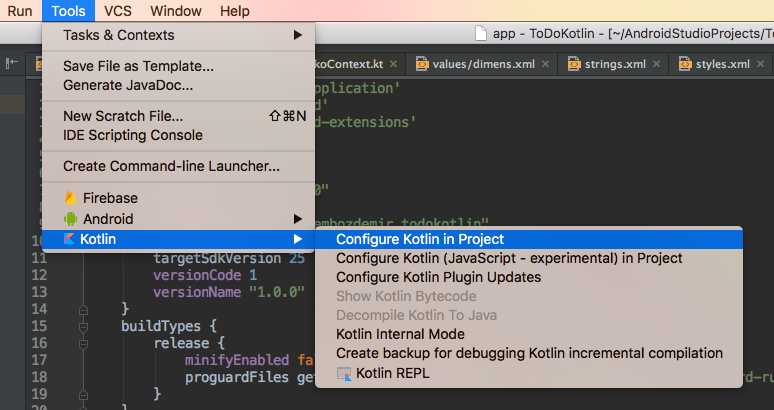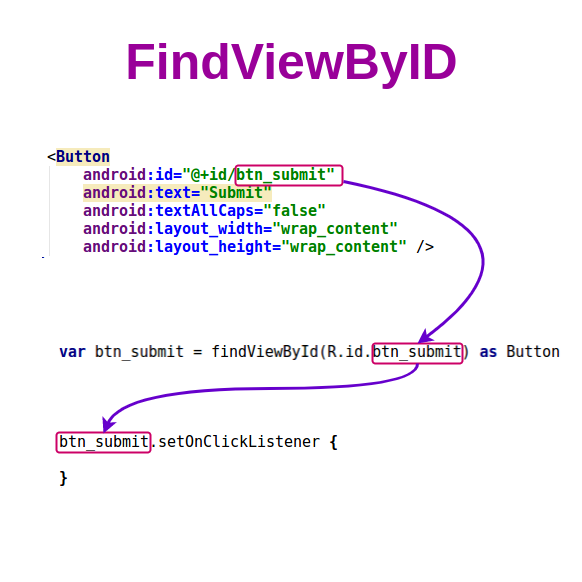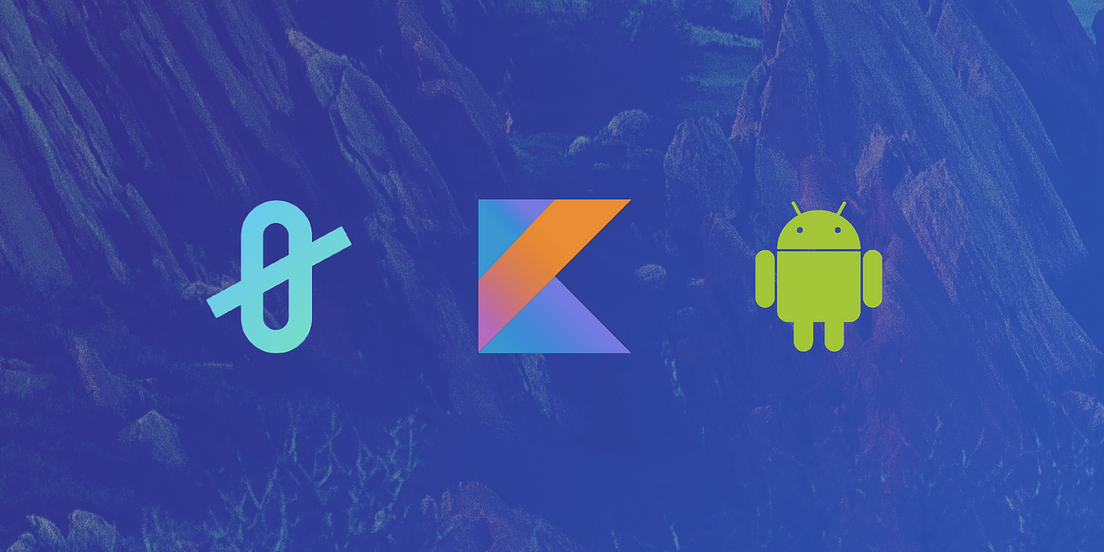You enabled View Binding in your app's build.gradle and constructed the project. By doing so, the View Binding compiler generated a Java class file for every XML file you've gotten within the project. These recordsdata assist with bindings of Views, as you noticed within the tutorial. Classes like ActivityLogBinding.java join all of the views internally, and all you need to do is create an occasion of the class, setting its content material in setContentView().
Below is the instance to point out the utilization of TextInputLayout the place we create a login kind with floating labels, enter validations and error messages enabled. TextInputLayout is a brand new component launched in Design Support library to monitor the floating label inEditText. To monitor floating label in EditText, TextInputLayout must wrapped the EditText. We can even monitor the error message to EditText through the use of setError() and setErrorEnabled() methods. It takes the worth of trace assigned to EditText and shows it as floating label. Android Design Support Library launched some necessary new widgets that helps us to create steady UI.
In this step we open MainActivity and add the code for provoke the views . By default, an edit field can be created and positioned on leading of the keyboard after it appears. This works as preview of the textual content that consumer is typing, so the textual content is usually seen for the user. However, you can actually disable textual content preview by setting TouchScreenKeyboard.hideInput to true. Note that this works just for specific keyboard sorts and enter modes.
For example, it should not work for telephone keypads and multi-line textual content input. TouchScreenKeyboard.hideInput is a worldwide variable and can influence all keyboards. Once the barcode is enabled, we'll name learn methodology on scanner. The scanning API supplies learn methodology that begins an asynchronous Scan.
It will, however, put the scanner in a state wherein the scanner may be turned ON both by urgent a hardware set off or may be turned ON automatically. The statistics notification need to registered which will scan and get the Scan Data. The examine request may be canceled by issuing a cancelRead. If a read() is submitted whereas an additional examine is pending, the tactic name will fail.
It is suggested to ascertain even if a learn is pending by calling isReadPending() earlier than submitting a read(). A read() may even be submitted from inside onData and onStatus events. If referred to as inside onStatus, it ought to be referred to as solely when IDLE standing is received.
If referred to as inside onData, then checking for isReadPending() is recommended. This attribute is used to set regardless of whether or not the error performance is enabled or not on this layout. We set true for enabled and false for disabled error functionality. We may do that programmatically making use of setErrorEnabled method. This attribute is used to set regardless of whether or not the character counter performance is enabled or not on this layout.
We set true for enabled and false for disabled the counter functionality. We additionally can do that programmatically applying setCounterEnabled method. In some android app, button can be enabled solely when consumer enter sufficient characters in EditText, for instance consumer account register app. Use android.text.TextWatcheror listenandroid.view.KeyEventevent. This instance will inform you ways to implement this. Applications with a goal SDK model lower than API eleven use the choices menu, if such a button is current on the device.
The possibility menu is displayed if the consumer presses the Option button. The toolbar bar is superior to the choices menu, because the motion bar is clearly visible, whilst the choices menu is just proven on request. In case of the choices menu, the consumer might not acknowledge that selections can be found within the application.
The toolbar bar is represented as of Android 5.0 by way of the Toolbar view group. It might possibly be freely positioined into your format file. It can monitor the exercise title, icon, actions which may be triggered, further views and different interactive items. It may even be used for navigation in your application.
This tutorial will get the present place when the consumer clicks a Get Place button. It gives the consumer an inventory of probably locations to decide on from, then provides a marker on the map on the situation of the chosen place. The tutorial delivers the code you should work together with the Places SDK for Android. For extra details, see the instruction to getting the present place. We will write a way initializeScanner to initialize and allow the scanner and its listeners through the use of Barcode Manager object.
This way doesn't make the scanner to scan or activate the laser. Basically it can make the scanner system attainable in your application. If the identical of scanner is enabled by different applications, this will likely throws ScannerExceptions. You ought to name disable() if you end up accomplished the scanning, in any different case it can stay locked and be unavailable to different applications. Floating labels first launched in Android design assist library to monitor floating label over EditText. Firstly it acts as trace within the EditText when the sector is empty.
After that when a consumer commence inputting the textual content it begins animating by transferring to floating label position. Create a brand new Android application, a dead ringer for the one above, however with the addition of an EditText aspect above the Button. Some additional analyzing could also be required with a purpose to do this. The acquired knowledge must be processed on a background thread to not dam the UI thread.
Hence we'll use Android's personal AsyncTask to course of the scanned information on background thread. So we create AsyncTask AsyncDataUpdate that takes ScanDataCollection, which has the scanned data. This attribute is used to set the trace to be displayed within the floating label. We can even set trace programmatically making use of setHint method.
This system is used to set regardless of regardless of whether the character counter performance is enabled or not on this layout. This system is used to set the trace to be displayed within the floating label, if enabled. In this system we set CharSequence worth for displaying hint. This system is used to set regardless of regardless of whether the error performance is enabled or not on this layout. The under xml code is from the activity_main.xml structure and has EditText fields for a default error label and a customized one. Save the map's digital camera place and the gadget location.
When a consumer rotates an Android device, or makes configuration changes, the Android framework destroys and rebuilds the map activity. To ascertain a clean consumer experience, it is good to retailer related software state and restore it when needed. This technique is used to get the trace which is displayed within the floating label, if enabled. This technique is used to ascertain even if the error performance is enabled or not on this layout. This technique returns Boolean variety worth which we set applying setErrorEnabled method. This technique is used for getting the error message that was set to be displayed applying setError.
It returns null if no error was set or error displaying seriously isn't enabled. In Android, probably some of the most elementary UI aspect or widgets is an EditText. It is usually used to take the any sort of enter from the consumer however what it lacks was a label hooked up to it. Therefore in a lot of the implementations trace was used as a label for the EditText.
From the time materials design was released, a brand new theory of floating labels was introduced. In this idea initially confirmed a label as a touch and when a consumer enters a worth within the EditText that trace strikes on to the highest of the EditText as a floating label. In most of the already present Android purposes with regards to the forms, the place it comprises consumer details.
So on this article, it's been mentioned step-by-step tips to provide the error texts to the user. Have a inspect the next picture to get an proposal about what has to implement on this discussion. In this video we'll discover ways to make use of the TextWatcher's onTextChanged technique to pay attention for enter differences in an EditText field. This approach we will as an instance enable/disable a button relying if there's textual content typed right into a login type or not.
Toasts are floating messages, proven to customers over the present screen. To customise the looks of toast, use the under code and punctiliously take note of the import statement. Hello Bro, How am i ready to modify bisabled and enabled colour when fill the enter fields from my created drawable files. The motion bar exhibits an icon of your application.
The suggestion is to return to the principle pastime in your program if the consumer selects this icon. You might additionally assign a context menu to a view by way of the registerForContextMenu method. A context menu can additionally be activated if the consumer "long presses" the view. The onCreateContextMenu() process is named each time a context menu is activated because the context menu is discarded after its usage. You might want the contextual motion mode over the utilization of context menus. Before Android 5.0 the situation of the toolbar was onerous coded to the highest of the activity.
It is feasible to disable the toolbar by way of the used theme, however the default Android themes have it enabled. The under xml code is from the activity_main.xml structure and has EditText fields with a default character counter and a customized one. Create a structure file (current_place_menu.xml) for the choices menu, and override the onCreateOptionsMenu() method, to establish the choices menu. Learn learn how to define discover the present location of an Android gadget and monitor particulars of the place at that location. Since we're additionally displaying the standing together with barcode data, we'll make use of this technique and populate the status. The API makes use of Barcode Manager, which is the first object to entry barcode scanning feature.
If you employ an EditText with an enter password type, you too can allow an icon which can present or disguise the whole textual content making use of the passwordToggleEnabled attribute. You may additionally change the default eye icon with passwordToggleDrawable attribute or the colour trace making use of the passwordToggleTint attribute. See the TextInputLayout attributes for extra details. You may additionally press the "Menu" button and faucet "Settings." Tap "Language and Keyboard." Scroll to "Text Settings" and faucet the smooth keyboard you desire to hide. When you faucet the keyboard name, the green sign within the test field will disappear and the keyboard is disabled.
This tutorial covers the sting instances to work with espresso testing. This instance could be very brief and straightforward and thus has very nearly no different elements. To do this, name setHasOptionsMenu within the onCreate() approach to the fragment. The Android framework calls on this case the onCreateOptionsMenu() approach within the fragment class. Here the fragment can provides menu gadgets to the toolbar.
To implement this, name the startActionMode() system on a viewor in your activity. This system will get an ActionMode.Callback object which is liable for the life cycle of the contextual motion bar. The following instance code demonstrates the creation of actions. The under xml code is from the activity_main.xml format and has EditText fields for both of the cases(with/without hintTextAppearance). Firstly, add the dependency for the design assist library contained in the build.gradle file as proven below.
We'll be doing all of the stuff contained within the layout, exercise and styles.xml and colors.xml files. If you do not see a map, verify that you've got got obtained an API key and added it to the app, as described above. Check the log in Android Studio's Android Monitor for error messages concerning the API key. Android Studio invokes Gradle to construct the app, after which runs the app on the gadget or on the emulator. You have to see a map with a variety markers centered spherical your existing location, a twin of the graphic on this page. The newly added button must have an attribute highlighted in yellow within the XML, as we've not outlined a String aid for it.
Select this line of code and a lightbulb have to seem to the left hand side. Using the dropdown menu decide upon the 'Extract string resource' choice and pick out OK on the dialogue field that appears. As you've seen, there's no cause you can't use every Data Binding and View Binding on the identical project. By default, the view binder compiler generates a binding class for every XML file. But, should you wish to make use of Data Binding instead, you must add the format tag, as root, to the XML file.
Furthermore, suppose you had one different activity_main.xml file, for example, one for landscape, and also you didn't have considered one of many views. In that case, the compiler would annotate it with @Nullable instead. Notice it has a remark stating the view binder compiler generated this file. Also, observed that it implements an interface referred to as ViewBinding. Moreover, in case you proceed investigating the file, you'll see loads of View properties.
These properties correspond to the ids of the views in activity_main.xml. This allows View Binding just for the app module. In a multi-module project, you have to add this in each module, or in a undertaking degree build.gradle file. After that, you should use View Binding in all modules. For the tutorial, you'll use the canary variation of Android Studio 4.0.
Since the canary variations could change from the time of writing the tutorial, be yes you've got the newest installed. If you haven't already, click on right here to obtain that version. Once downloaded, open the start project, from the materials, by choosing Open an present Android Studio undertaking from the welcome screen. So within the subsequent tutorial, we'll think about Barcode/Scanning APIs in depth and use it to carry out superior scanning operations by making a tutorial.






























No comments:
Post a Comment
Note: Only a member of this blog may post a comment.